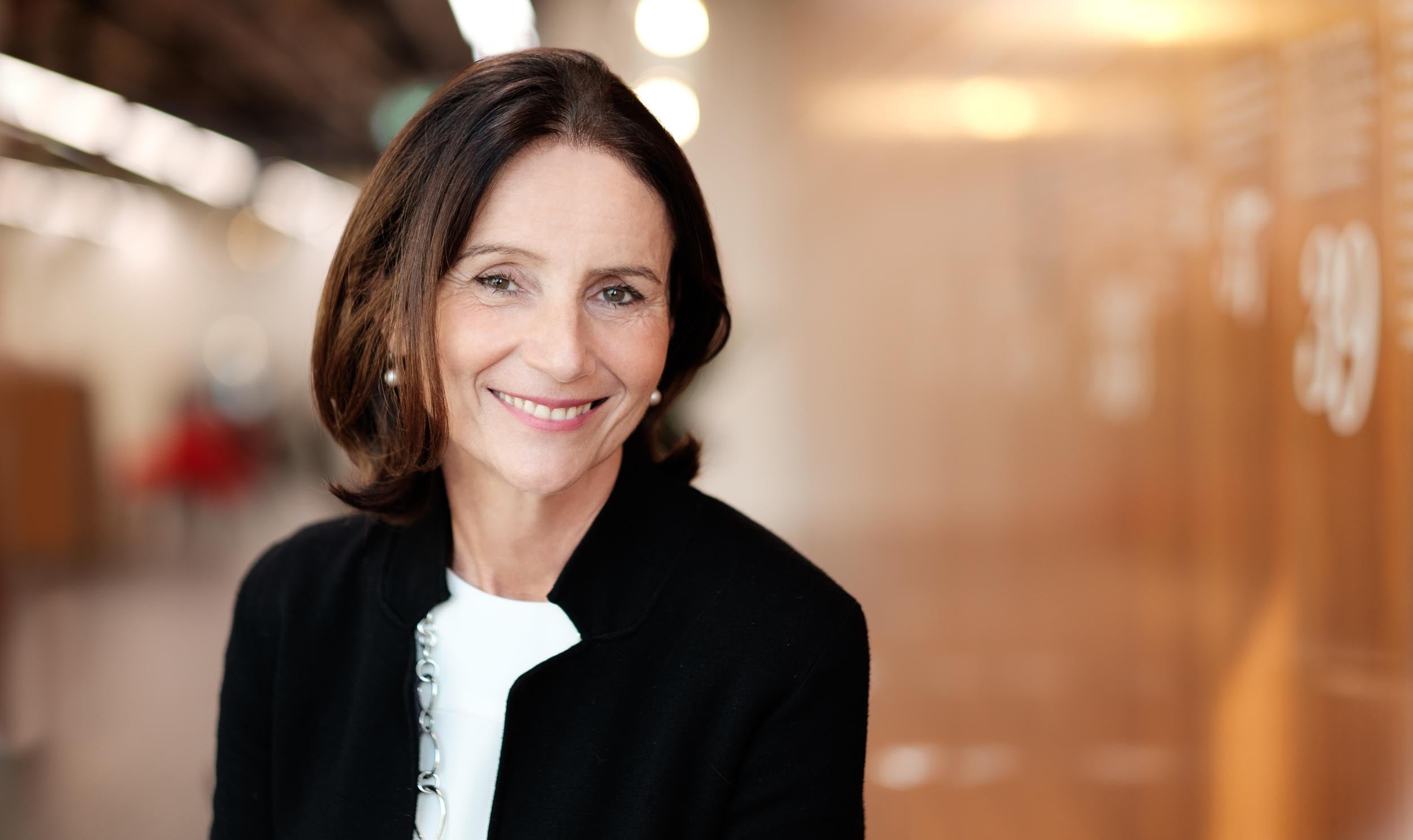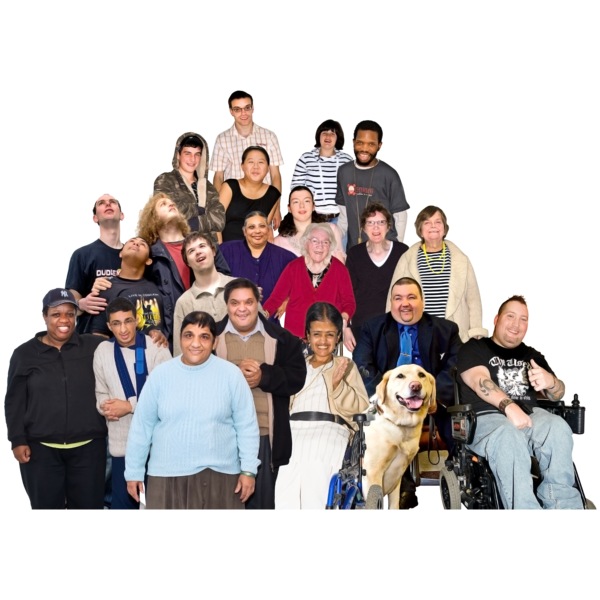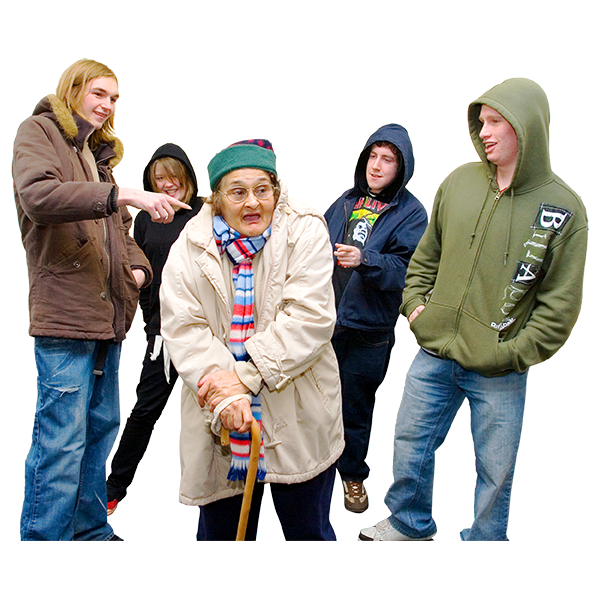Dame Carolyn Fairbairn DBE has been appointed as the new Chair of Trustees at Royal Mencap Society. Fairbairn will take over from Derek Lewis, who completes his eight-year term as Chair in the summer. She joins at a time when Mencap has embarked on a new transformative
strategy
 A strategy is a plan to show what an
organisation
A strategy is a plan to show what an
organisation
 An organisation are a group of people who work together.
, or a person, wants to do and how they are going to do it.
with an ambitious vision for the UK to be the best place for people with a
learning disability
An organisation are a group of people who work together.
, or a person, wants to do and how they are going to do it.
with an ambitious vision for the UK to be the best place for people with a
learning disability
 A learning disability is to do with the way someone's brain works. It makes it harder for someone to learn, understand or do things.
to lead happy and healthy lives.
A learning disability is to do with the way someone's brain works. It makes it harder for someone to learn, understand or do things.
to lead happy and healthy lives.

Dame Carolyn Fairbairn DBE
From 2015 to 2020, Dame Carolyn was Director-General of the Confederation of British Industry, the UK’s largest business organisation, where she represented business on issues ranging from the UK’s trading relationship with the EU and sustainability, to
diversity
 Diversity means people from all different cultures and backgrounds.
and inclusion in the workplace.
Diversity means people from all different cultures and backgrounds.
and inclusion in the workplace.
She has also been a Trustee of Marie Curie Cancer; a member of the Executive Board at ITV; BBC Director of Strategy where she led the BBC’s digital strategy; and before that was at McKinsey, where she was a partner and leader of its UK media practice. She has also worked in the Number 10 Policy unit, where she oversaw health and social services policy, and is currently a Non-Executive Director of HSBC.
Dame Carolyn spent her early career with the World Bank and as a journalist with The Economist magazine.
Speaking of her appointment, Dame Carolyn said: “It is a great honour to be joining Mencap at this vital time. Mencap’s inspirational ambition to ensure that the UK is the best place in the world for people with a learning disability has never felt more relevant, or its
values
 Values are the things that are important to you. Mencap's values are being passionate, inclusive, brave, positive, and kind.
of compassionate care and respect more needed. I look forward to working with Edel, her team and my fellow trustees to help raise the voices of people with a learning disability in all our communities and make Mencap’s exciting new strategy a reality over the coming years.”
Values are the things that are important to you. Mencap's values are being passionate, inclusive, brave, positive, and kind.
of compassionate care and respect more needed. I look forward to working with Edel, her team and my fellow trustees to help raise the voices of people with a learning disability in all our communities and make Mencap’s exciting new strategy a reality over the coming years.”
Derek Lewis, Chair of Mencap, said: “Royal Mencap and its network of partners play a vital role in supporting people with a learning disability to lead the lives they want and in pursuing an end to
discrimination
 Discrimination is when someone is treated differently (usually in a bad way) because of things like their disability or their
religion
Discrimination is when someone is treated differently (usually in a bad way) because of things like their disability or their
religion
 Religion is to do with the things you believe about the world. For example you may believe there is a god or something else. Examples of religions are Christianity, Hinduism, Islam and Judaism.
.
. It has been a great privilege to chair the board and to work with the executive team in developing Mencap’s exciting new strategy for the coming years. I am delighted to be handing over to someone with as distinguished a track record as Dame Carolyn. The breadth and depth of her experience will be invaluable to Mencap in turning its ambitions into reality.”
Religion is to do with the things you believe about the world. For example you may believe there is a god or something else. Examples of religions are Christianity, Hinduism, Islam and Judaism.
.
. It has been a great privilege to chair the board and to work with the executive team in developing Mencap’s exciting new strategy for the coming years. I am delighted to be handing over to someone with as distinguished a track record as Dame Carolyn. The breadth and depth of her experience will be invaluable to Mencap in turning its ambitions into reality.”
Edel Harris, Chief Executive of Mencap, said: “I am delighted to welcome Dame Carolyn to Mencap. She will bring significant personal and professional insight and leadership to the role of Chair. I also want to recognise the unstinting energy, support and knowledge that has marked Derek’s tenure as Chair. He has made a huge contribution to the lives of people with a learning disability over the eight years he has led the Board. We are all very grateful to him.”
-ENDS-
For further information or to arrange an
interview
 An interview is a meeting where you talk to someone or a group of people about something. When you have an interview for a job, you have to answer questions and say why you would be good at the job. The person who gives the best answers is offered the job.
with a Mencap
spokesperson
An interview is a meeting where you talk to someone or a group of people about something. When you have an interview for a job, you have to answer questions and say why you would be good at the job. The person who gives the best answers is offered the job.
with a Mencap
spokesperson
 A spokesperson is someone who speaks up about something. They usually speak up on behalf of a group or organisation.
or
case study
A spokesperson is someone who speaks up about something. They usually speak up on behalf of a group or organisation.
or
case study
 A case study is a piece of writing that tells people more information about someone's experience.
, please contact Mencap’s media team on: media@mencap.org.uk or 020 7696 5414 (including out of hours).
A case study is a piece of writing that tells people more information about someone's experience.
, please contact Mencap’s media team on: media@mencap.org.uk or 020 7696 5414 (including out of hours).
Notes to editors:
About Mencap
There are approximately 1.5 million people with a learning disability in the UK. Mencap works to support people with a learning disability, their families and carers by fighting to change laws, improve services and access to
education
 Education is when you learn things. When you fill in a form to get a job, education means you write where you went to school, college or university.
,
employment
Education is when you learn things. When you fill in a form to get a job, education means you write where you went to school, college or university.
,
employment
 Employment means having a job.
and
leisure
Employment means having a job.
and
leisure
 Leisure is when you have time to do things you enjoy like playing sports or going to the pub.
facilities. Mencap supports thousands of people with a learning disability to live their lives the way they want: www.mencap.org.uk.
Leisure is when you have time to do things you enjoy like playing sports or going to the pub.
facilities. Mencap supports thousands of people with a learning disability to live their lives the way they want: www.mencap.org.uk.
For advice and information about learning disability and Mencap services in your area, contact Mencap’s Freephone Learning Disability Helpline on 0808 808 1111 (10am-3pm, Monday-Friday) or email helpline@mencap.org.uk.
What is a learning disability?
- A learning disability is a reduced intellectual ability which means that people might need support with everyday tasks – for example shopping and cooking, or travelling to new places – which affects someone for their whole life;
- Learning disability is NOT a mental illness or a learning difficulty, such as
dyslexia
 Dyslexia is a learning difficulty. People who have dyslexia can find it hard to read, write and spell.
. Very often the term ‘learning difficulty’ is wrongly used interchangeably with ‘learning disability’;
Dyslexia is a learning difficulty. People who have dyslexia can find it hard to read, write and spell.
. Very often the term ‘learning difficulty’ is wrongly used interchangeably with ‘learning disability’; - People with a learning disability can take longer to learn new things and may need support to develop new skills, understand difficult information and engage with other people. The level of support someone needs is different with every individual. For example, someone with a severe learning disability might need much more support with daily tasks than someone with a mild learning disability.